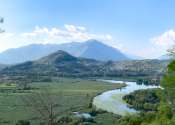Simulations identify how critical elements distribute in abundant mineral ores
Nickel (Ni) and cobalt (Co) are critical elements for modern technologies, with high-grade Ni and Co ores becoming increasingly scarce. Mafic and ultramafic deposits are low-grade, abundant alternatives to traditional Ni ...









